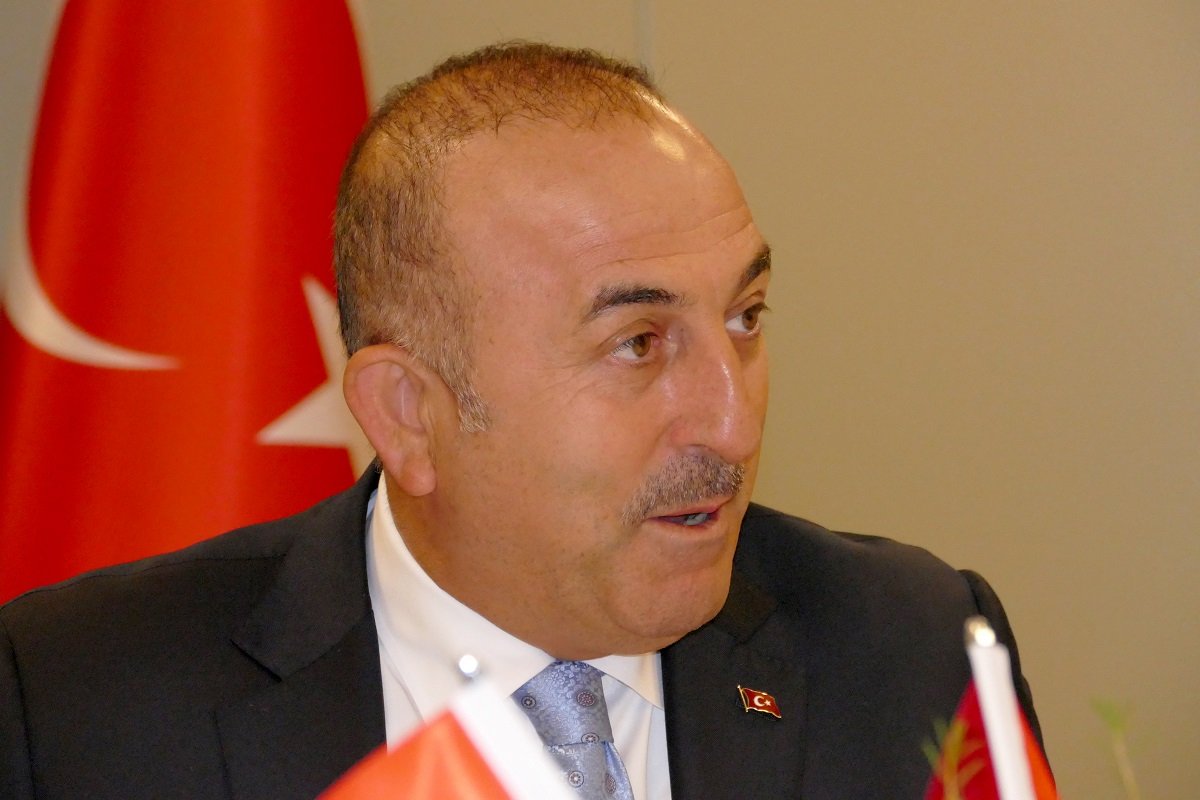German politicians have warned that Turkish Foreign Minister Mevlüt Çavuşoğlu’s plan to join a ceremony to commemorate a racist attack that occurred 25 years ago in Solingen, Germany, could be used as a political campaign event, according to a report by Deutsche Welle (DW) on Wednesday.
The report said that no other foreign official has had German politicians across party lines rushing to find a microphone like Çavuşoğlu. The Turkish foreign minister caused a stir this week after he announced plans to travel to Solingen next month to commemorate the five Turkish victims of a racially motivated firebomb attack in the western German town in 1993.
“Solingen has a dignified, reflective commemoration planned for May 29,” said Jürgen Hardt, the foreign policy spokesman for Chancellor Angela Merkel’s Christian Democrats (CDU), along with their Bavarian sister party, the Christian Social Union (CSU). “It would be very unfortunate if the event were overshadowed and the peace disturbed by Turkish domestic disputes.”
He warned that Çavusoglu’s planned attendance could be viewed as a campaign event ahead of Turkey’s snap elections. “There is no room for Turkey’s election campaign in Solingen on May 29,” Hardt said.
Alexander Graf Lambsdorff, of the laissez-faire Free Democrats (FDP), said Turkey and Germany could work side by side to combat racism and commemorate events such as the Solingen attack, but added that such cooperation stopped at election promotion. “The German government needs to take a clear stance,” he told DW. “There can be no Turkish election campaign on German territory.”
According to Yaşar Aydın, a sociologist at the Hamburg-based Protestant University for Social Work and Deaconry, uninviting Çavuşoğlu from the service would risk harming relations between Germany and Turkey. Nevertheless, he does understand Berlin’s dilemma. “Democracy has been declining in Turkey for years, the country is moving away from Western values and human rights abuses are on the rise,” Aydın said. “That’s why German politicians are opposed to senior Turkish politicians making appearances in Germany — they don’t want to stand accused of supporting the Turkish government’s election campaign.”
In April 2017, Turkey held a controversial constitutional referendum granting sweeping new powers to the presidency. Ahead of the vote, a bitter dispute broke out between Berlin and Ankara over Turkish campaign appearances in Germany that hogged the headlines for weeks.
A month before the referendum, Çavuşoğlu used a visit to the Consulate General in Hamburg to lobby in favor of the referendum. In June 2017, Germany’s Foreign Ministry stipulated that foreign officials are banned from campaigning in Germany three months before an election or referendum in their country.
Now politicians in Germany are concerned Çavuşoğlu might use the Solingen remembrance event to dodge that regulation. “I hope Mevlüt Çavuşoğlu is aware of where he is on that day, and why people are getting together,” Cem Özdemir, a German Green party politician, told DW. “He shouldn’t use this memorial service to stage an election campaign.”
Rolf Mützenich, a foreign policy expert for the center-left Social Democrats (SPD), told DW he expects that out of respect, the Turkish foreign minister will consider remembrance of the victims and the consequences of the bomb attack. “In that case, I’m not worried about further strains in German-Turkish relations,” he said.
Aydın, however, is convinced the Turkish foreign minister will not be regarded as simply another mourner. “Even if Çavuşoğlu participates as a mourner, he will still be seen as a politician; you can’t separate the two,” he said. “Even if he doesn’t mention the Turkish elections, it will be an election campaign appearance.”
Meanwhile, authorities in the German city of Solingen have reportedly requested a text of a speech that Çavuşoğlu intends to deliver there on May 29th. According to another report by DW, the municipality learned of Çavuşoğlu’s intentions to attend the ceremony a few days previously, according to a spokesman, and requested to see the speech beforehand in order to make copies and translations for distribution at the ceremony.
Turkish officials have joined ceremonies attending the Solingen attack in the past. In 2013, Turkey’s current deputy prime minister, Bekir Bozdağ, spoke at a ceremony marking the 20th anniversary of the attack. This year however, with Turkey due to hold simultaneous presidential and parliamentary elections on June 24, German authorities have made it clear they would not allow Turkish officials to campaign on German soil.
However, Turkish President Erdoğan said on Tuesday he was planning to hold an election rally in a European city in May to reach out to Europe’s Turkish communities ahead of snap parliamentary and presidential elections in Turkey. Erdoğan’s plans could put Turkey on a collision course with the European Union, several of whose members have banned Turkish politicians from campaigning on their soil.
In a speech to members of his ruling AKP, Erdoğan said: “God willing, in May, we will hold our first meeting in a closed sports hall in Europe in a European country. All preparations are complete.”
Despite he did not identify the European country in question, the pro-government Yeni Şafak daily wrote on Wednesday that Erdoğan will hold an electoral rally in Bosnia on May 20 after other European countries pre-emptively refused permission for such meetings.
“Following the string of anti-democratic announcements from European countries on the topic of election campaigns being carried out overseas, President Erdoğan’s meeting to be arranged overseas has become even more important,” the newspaper said. “According to information received, President Erdoğan will meet with 10,000-11,000 migrant Turks in Sarajevo, the capital of Bosnia-Herzegovina, on May 20.”
The news comes following announcements from Germany, the Netherlands and Austria that they would not be allowing Turkish government figures to campaign in their countries.















